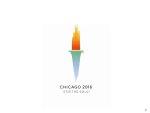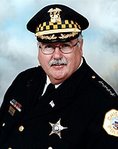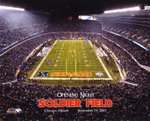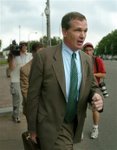City, Daley duck the money issue
Philip Hersh
On Olympic Sports
Chicago Tribune
March 12, 2007
It has been 10 months since Mayor Richard Daley announced Chicago would explore whether it made economic sense to bid for the 2016 Olympics.
Although the reply seems to be that the city will learn in a month whether it or Los Angeles is the U.S. candidate for 2016, some may wonder if the original question ever was answered.
Chicago 2016 has logos, T-shirts, a $30 million-plus war chest for the international phase of the competition and impressive, well-conceived plans for what the Summer Games would look like and where they would take place.
Even so, the Chicago bid story still has elements of an old folk tale about a man who didn't know how long it would take to roast a pig because he didn't know how much the animal weighed.
A friend told the man to put the pig on a board positioned like a seesaw and to find a rock that would exactly balance the pig. Having achieved that balance, there was only one problem: No one knew how much the rock weighed.
Chicago 2016 officials were caught between a sizeable rock and a hard place last week (yes, we're mixing metaphors) when the U.S. Olympic Committee insisted the city have a stake in the guarantee against financial shortfalls that the International Olympic Committee requires of bid cities. So they decided the Chicago pig weighed enough to feed the kitty, no matter how long it took to roast.
Chicago 2016 officials said Friday the city would never need to tap $500 million it would pledge to a guarantee because a Chicago Olympics would leave a $525 million surplus. But Chicago 2016 Chairman Patrick Ryan declined to give projected revenue and expense numbers to show how the balance would tip so heavily against any financial risk for the city.
And that brings to mind Charles Lamb's early 19th Century essay, "A Dissertation Upon Roast Pig," in which Lamb says that if there were ever a pretext to burn down houses, it would be to enjoy roast pig.
After all, we have Taste of Chicago. Why not enjoy a taste of the Olympics and assume it is a cash cow rather than Mrs. O'Leary's?
Give Chicago 2016 and the city credit for cooking up a fast response after USOC Vice President Bob Ctvrtlik insisted the city must have "some skin in the game" at a Wednesday news conference following the USOC's two-day evaluation visit.
Ryan insisted Chicago 2016 officials were caught off guard by the USOC's rejection of their plan to fund the guarantee from only the private sector. That surprise seems to explain what University of Chicago economist Allen Sanderson called a "deer-in-the-headlights" reaction by Mayor Daley at the Wednesday news conference, when he repeatedly dodged questions about his previous promise that no public funds would be used for the Olympics.
U.S. bidders start at a disadvantage. Everywhere but the United States, governments provide the financial guarantee. London had $3.8 billion in government guarantees against organizing committee shortfalls and an apparently limitless guarantee against other related costs when the IOC chose it as 2012 Summer Games host.
"I'm not opposed to spending public money for something beneficial to the city of Chicago," Sanderson said, "but the mayor should have made that case a long time ago. Maybe the benefits aren't that great."
Chicago 2016 officials are relying largely on Olympic finance theories posited by a German sports economist, Holger Preuss, in his 2004 book, "The Economics of Staging the Olympic Games, 1972-2008."
Preuss claims all those Olympics made a profit on organizing the Games if one removes "investments" from the final balance sheets. That will come as a shock to the citizens of Montreal, left with a white elephant Olympic Stadium and a $1 billion deficit.
Preuss' conclusions about profits for other recent Olympics, notably Atlanta '96, also are debatable.
"There are investments you have to make to have the Games," said Conrad Freund, chief financial officer of the 1984 Los Angeles Summer Games.
L.A. '84 became the economic model on which most future Olympic financial plans have been based. Privately financed, with corporations building the only two major facilities (aquatics center and cycling velodrome) the city lacked, Los Angeles turned an organizing profit of $232.5 million.
Freund sees the Los Angeles profit as a justification for Chicago's surplus projection, provided there is as much sponsor and TV excitement about a 2016 Olympics in the United States as both Ryan and LA 2016 bid Chairman Barry Sanders say they can expect.
"If you just multiply the L.A. profit by the inflation index, $500 million does not seem an unreasonable figure," Freund said.
Chicago plans to pay for its biggest Olympic projects—a $366 million largely temporary main stadium, a $78 million aquatics center with three permanent pools, a $1.1 billion Olympic Village—in a variety of ways, including Olympic revenues and investments by developers. All of it is to be private funding.
It very well could add up the way Chicago bid boosters claim. It just would be nice to see all the numbers before the bid dives from the frying pan it apparently escaped last week into the fire.
Philip Hersh
On Olympic Sports
Chicago Tribune
March 12, 2007
It has been 10 months since Mayor Richard Daley announced Chicago would explore whether it made economic sense to bid for the 2016 Olympics.
Although the reply seems to be that the city will learn in a month whether it or Los Angeles is the U.S. candidate for 2016, some may wonder if the original question ever was answered.
Chicago 2016 has logos, T-shirts, a $30 million-plus war chest for the international phase of the competition and impressive, well-conceived plans for what the Summer Games would look like and where they would take place.
Even so, the Chicago bid story still has elements of an old folk tale about a man who didn't know how long it would take to roast a pig because he didn't know how much the animal weighed.
A friend told the man to put the pig on a board positioned like a seesaw and to find a rock that would exactly balance the pig. Having achieved that balance, there was only one problem: No one knew how much the rock weighed.
Chicago 2016 officials were caught between a sizeable rock and a hard place last week (yes, we're mixing metaphors) when the U.S. Olympic Committee insisted the city have a stake in the guarantee against financial shortfalls that the International Olympic Committee requires of bid cities. So they decided the Chicago pig weighed enough to feed the kitty, no matter how long it took to roast.
Chicago 2016 officials said Friday the city would never need to tap $500 million it would pledge to a guarantee because a Chicago Olympics would leave a $525 million surplus. But Chicago 2016 Chairman Patrick Ryan declined to give projected revenue and expense numbers to show how the balance would tip so heavily against any financial risk for the city.
And that brings to mind Charles Lamb's early 19th Century essay, "A Dissertation Upon Roast Pig," in which Lamb says that if there were ever a pretext to burn down houses, it would be to enjoy roast pig.
After all, we have Taste of Chicago. Why not enjoy a taste of the Olympics and assume it is a cash cow rather than Mrs. O'Leary's?
Give Chicago 2016 and the city credit for cooking up a fast response after USOC Vice President Bob Ctvrtlik insisted the city must have "some skin in the game" at a Wednesday news conference following the USOC's two-day evaluation visit.
Ryan insisted Chicago 2016 officials were caught off guard by the USOC's rejection of their plan to fund the guarantee from only the private sector. That surprise seems to explain what University of Chicago economist Allen Sanderson called a "deer-in-the-headlights" reaction by Mayor Daley at the Wednesday news conference, when he repeatedly dodged questions about his previous promise that no public funds would be used for the Olympics.
U.S. bidders start at a disadvantage. Everywhere but the United States, governments provide the financial guarantee. London had $3.8 billion in government guarantees against organizing committee shortfalls and an apparently limitless guarantee against other related costs when the IOC chose it as 2012 Summer Games host.
"I'm not opposed to spending public money for something beneficial to the city of Chicago," Sanderson said, "but the mayor should have made that case a long time ago. Maybe the benefits aren't that great."
Chicago 2016 officials are relying largely on Olympic finance theories posited by a German sports economist, Holger Preuss, in his 2004 book, "The Economics of Staging the Olympic Games, 1972-2008."
Preuss claims all those Olympics made a profit on organizing the Games if one removes "investments" from the final balance sheets. That will come as a shock to the citizens of Montreal, left with a white elephant Olympic Stadium and a $1 billion deficit.
Preuss' conclusions about profits for other recent Olympics, notably Atlanta '96, also are debatable.
"There are investments you have to make to have the Games," said Conrad Freund, chief financial officer of the 1984 Los Angeles Summer Games.
L.A. '84 became the economic model on which most future Olympic financial plans have been based. Privately financed, with corporations building the only two major facilities (aquatics center and cycling velodrome) the city lacked, Los Angeles turned an organizing profit of $232.5 million.
Freund sees the Los Angeles profit as a justification for Chicago's surplus projection, provided there is as much sponsor and TV excitement about a 2016 Olympics in the United States as both Ryan and LA 2016 bid Chairman Barry Sanders say they can expect.
"If you just multiply the L.A. profit by the inflation index, $500 million does not seem an unreasonable figure," Freund said.
Chicago plans to pay for its biggest Olympic projects—a $366 million largely temporary main stadium, a $78 million aquatics center with three permanent pools, a $1.1 billion Olympic Village—in a variety of ways, including Olympic revenues and investments by developers. All of it is to be private funding.
It very well could add up the way Chicago bid boosters claim. It just would be nice to see all the numbers before the bid dives from the frying pan it apparently escaped last week into the fire.




No comments:
Post a Comment